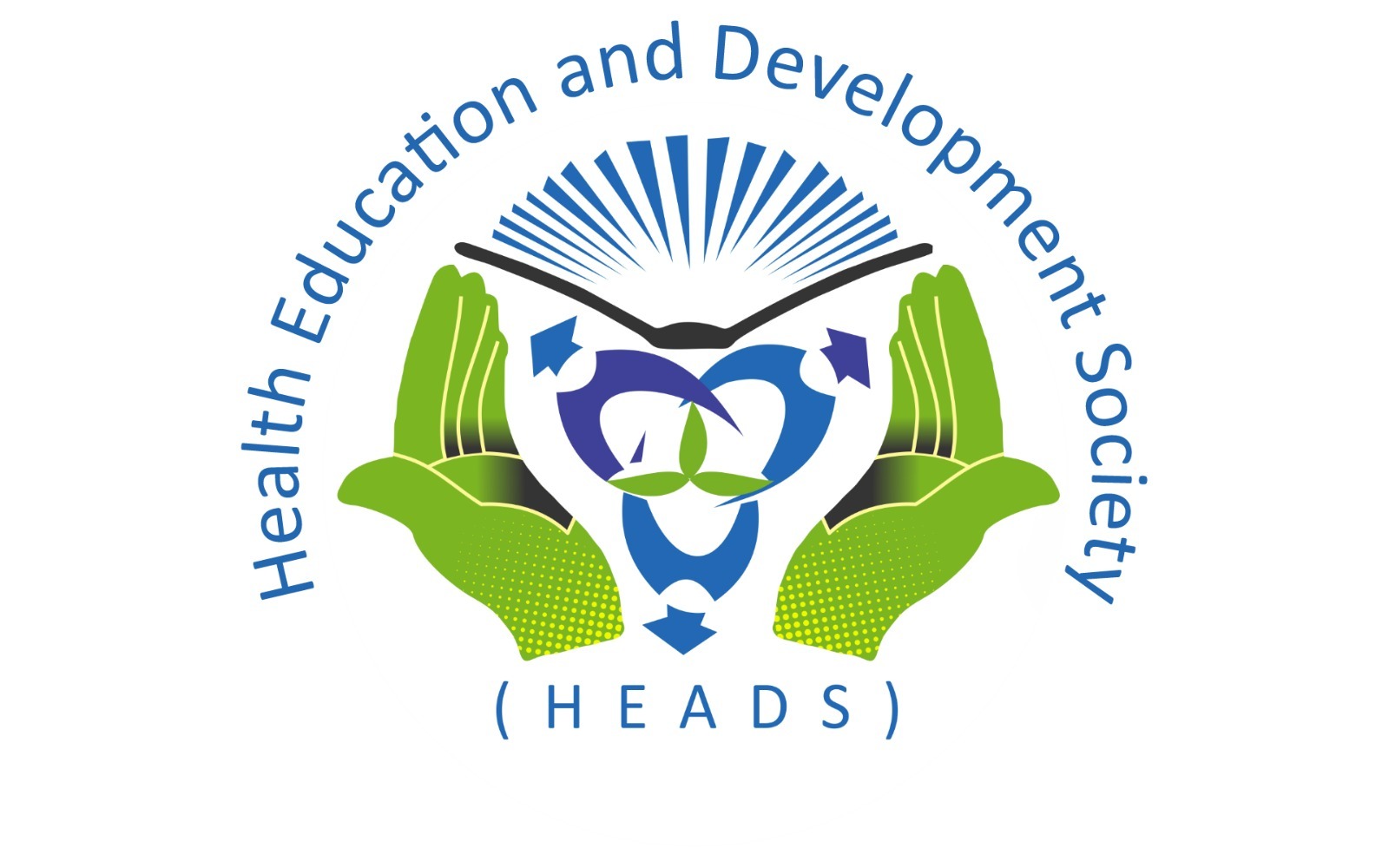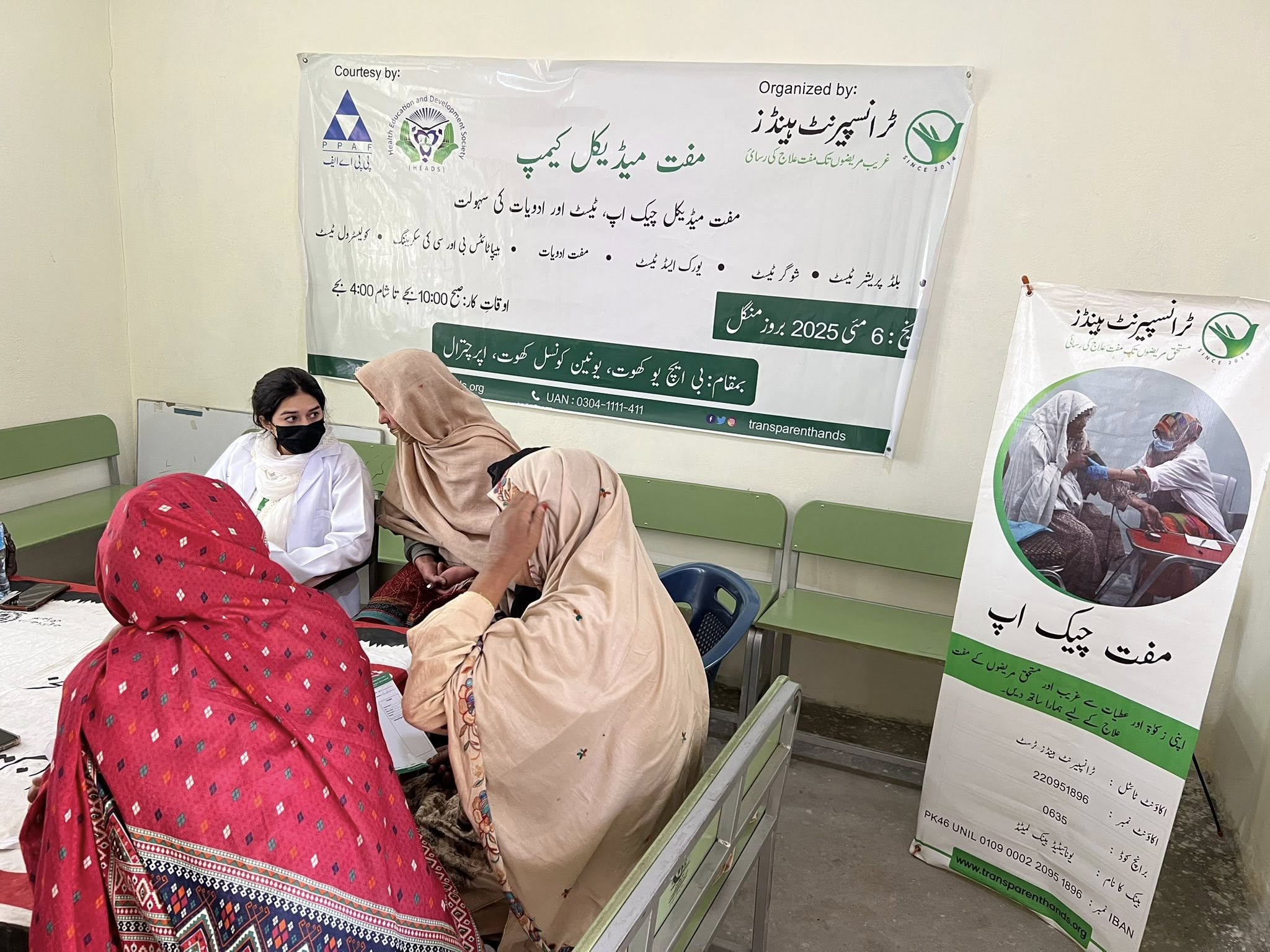
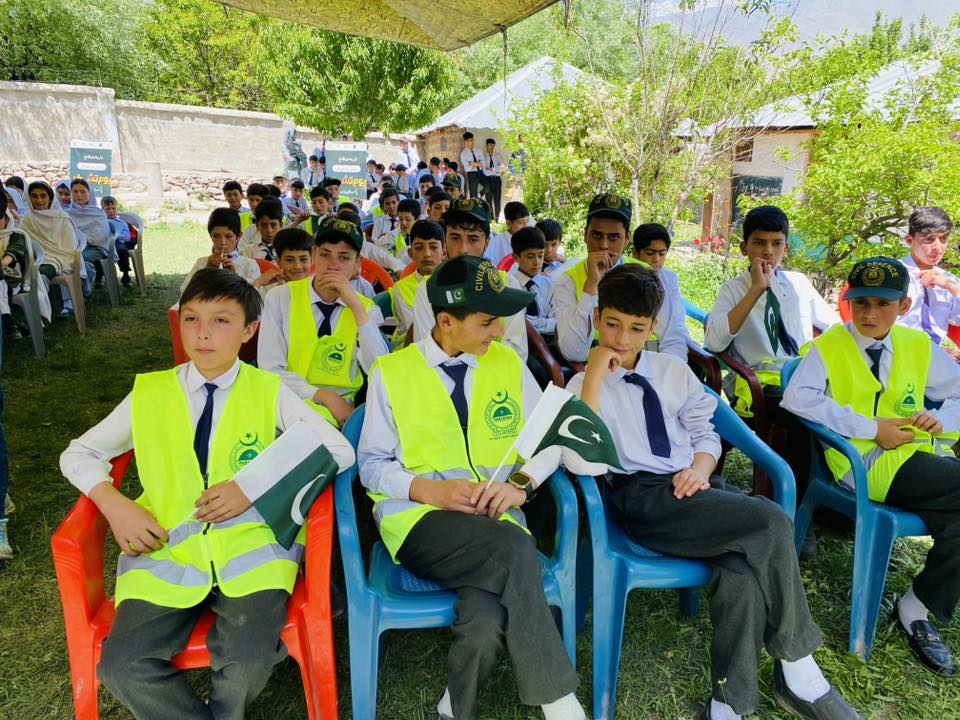
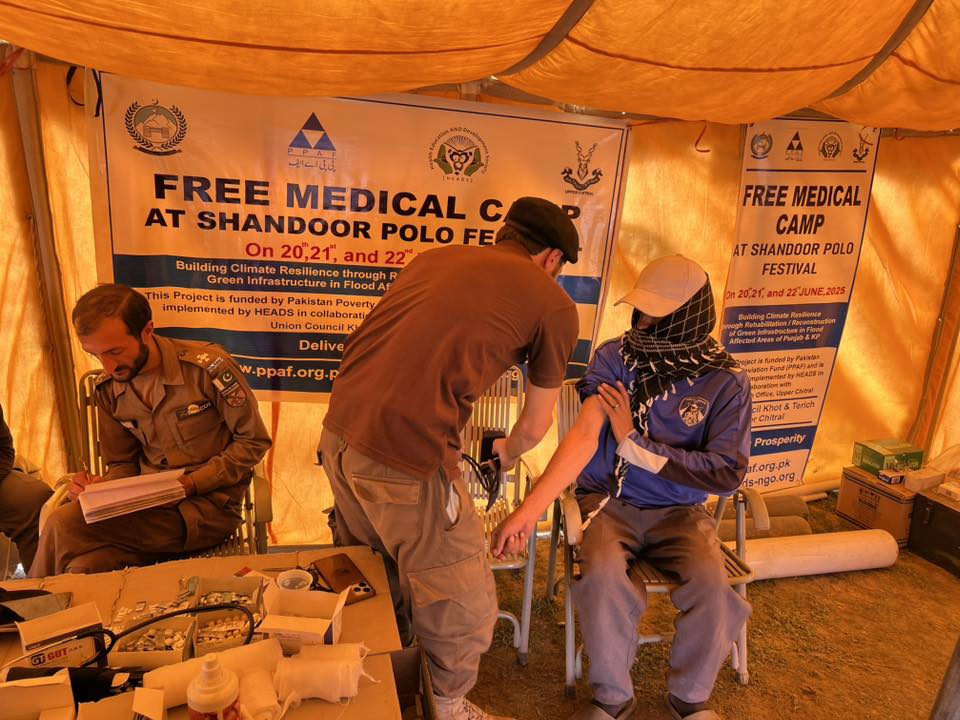
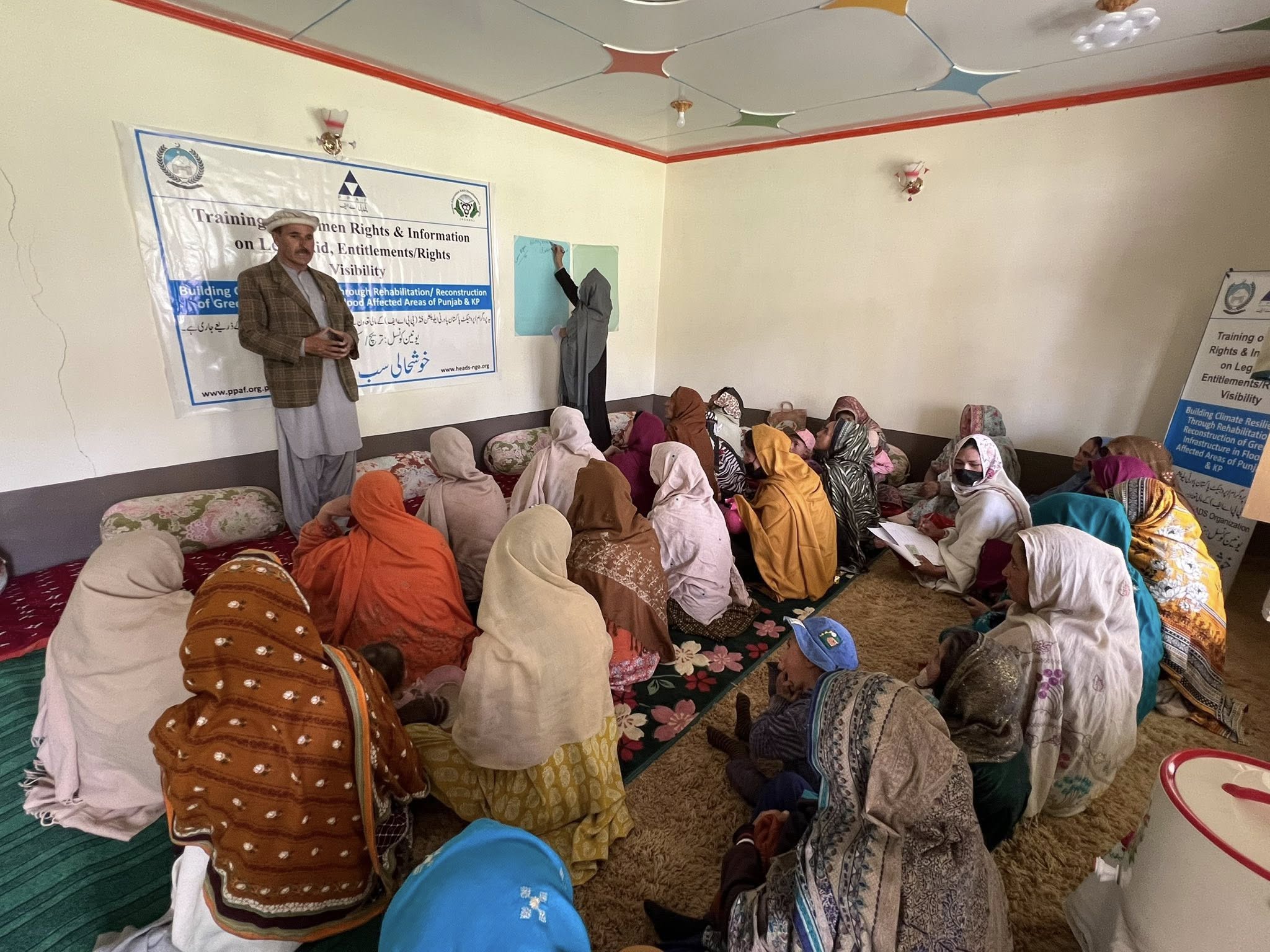
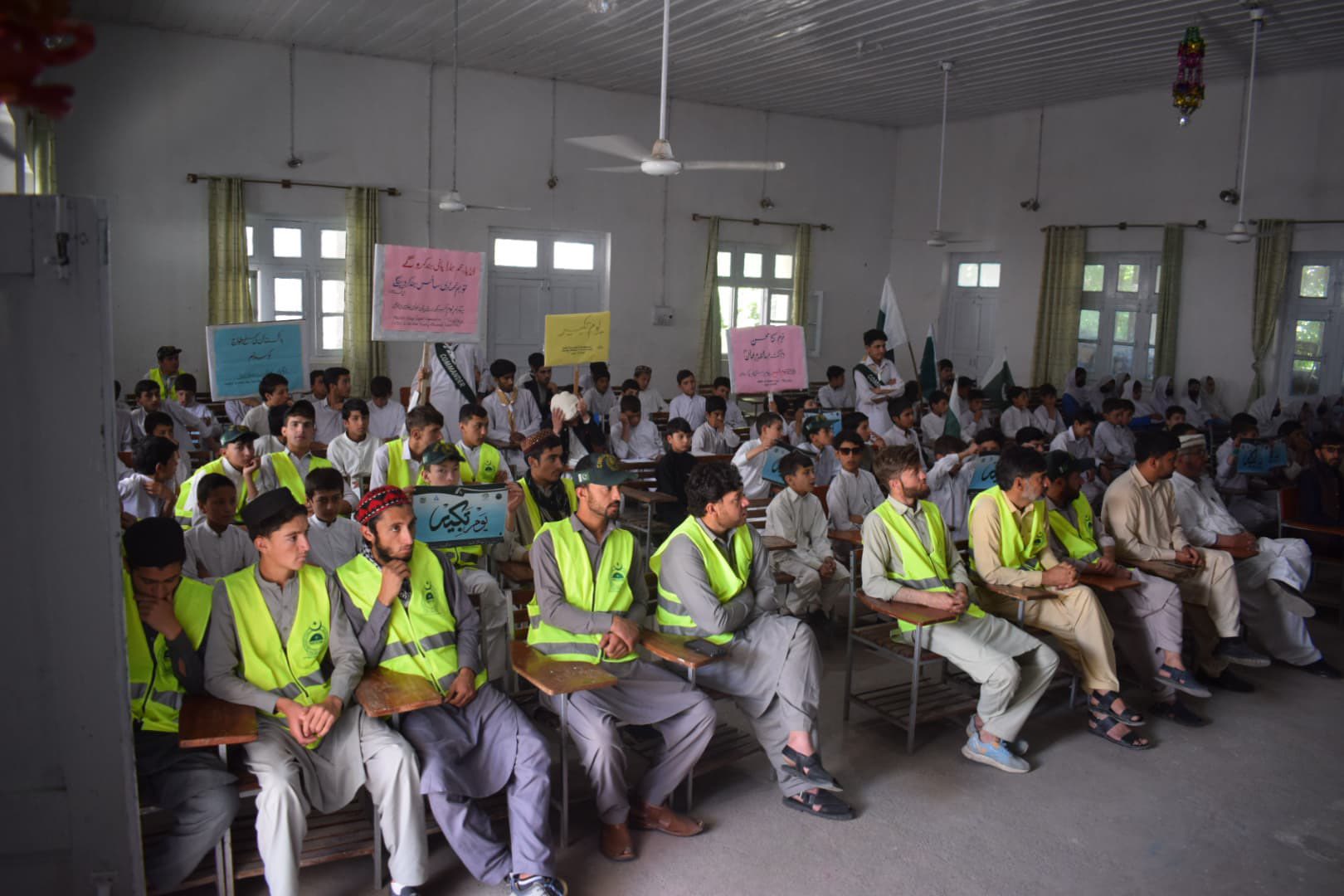
- Donor: Pakistan Poverty Alleviation Fund (PPAF)
- Duration: 1st May 2024 to 30th April 2026
- Working Area: District Chitral Upper Khyber Pakhtunkhwa (KP)
- Budget : 72,944,500
The Health Education and Development Society (HEADS), in partnership with the Pakistan Poverty Alleviation Fund (PPAF), is implementing a comprehensive climate resilience and social service restoration project in the flood-affected Union Councils of Khot and Terich, Upper Chitral. The initiative aims to restore basic services and strengthen the adaptive capacity of local communities through inclusive, gender-sensitive, and participatory approaches. Targeting critical needs in health, education, water and sanitation, and livelihoods, the project focuses on enhancing disaster preparedness and building long-term climate resilience in vulnerable communities.
Project Objectives:
- Restore essential social services, including health, education, and WASH facilities in flood-affected areas.
- Rehabilitate and retrofit critical community infrastructure with a focus on climate resilience.
- Strengthen food and income security through climate-smart livelihood interventions.
- Build community-level preparedness and institutional capacity for climate adaptation and disaster risk reduction.
- Promote gender equality, social inclusion, and prevention of gender-based violence (GBV).
Key Activities:
- Restoration and retrofitting of health and education facilities, including provision of missing components and solarization.
- Rehabilitation of WASH infrastructure (drainage, sanitation) and water supply schemes, including installation of filtration plants.
- Provision of essential health services through outreach camps and vaccination drives.
- Construction of flood protection structures and restoration of damaged irrigation channels.
- Deployment of Climate Resilience Resource Persons (CRPs) – 5 per UC for a duration of 12 months.
- Identification and capacity building of emergency response teams.
- Conducting multi-hazard vulnerability and capacity assessments.
- Community-based disaster risk management (CBDRM) training sessions (5 events per UC).
- School-based DRM and environmental education programs, including school safety tips, plantation drives, and the formation of environmental clubs (23 sessions/events per UC).
- Health center–based DRM sessions, development of disaster management committees, and local disaster plans (8 sessions/events per UC).
- Social mobilization and capacity building of Village Organizations (VOs) – support provided to 4 VOs per UC.
- GBV prevention awareness sessions for communities (10 sessions per UC).
- Women’s leadership and decision-making forums (3 events per UC).
- Human rights and women’s rights training, legal aid awareness, and linkage development (3 sessions per UC).
- Behavior change sessions to raise awareness of GBV prevention among government staff (3 sessions per UC).
- Celebration of international days at the local level (5 events per UC).
- Capacity-building trainings for Project Officers – 6 sessions for 8 staff members.
